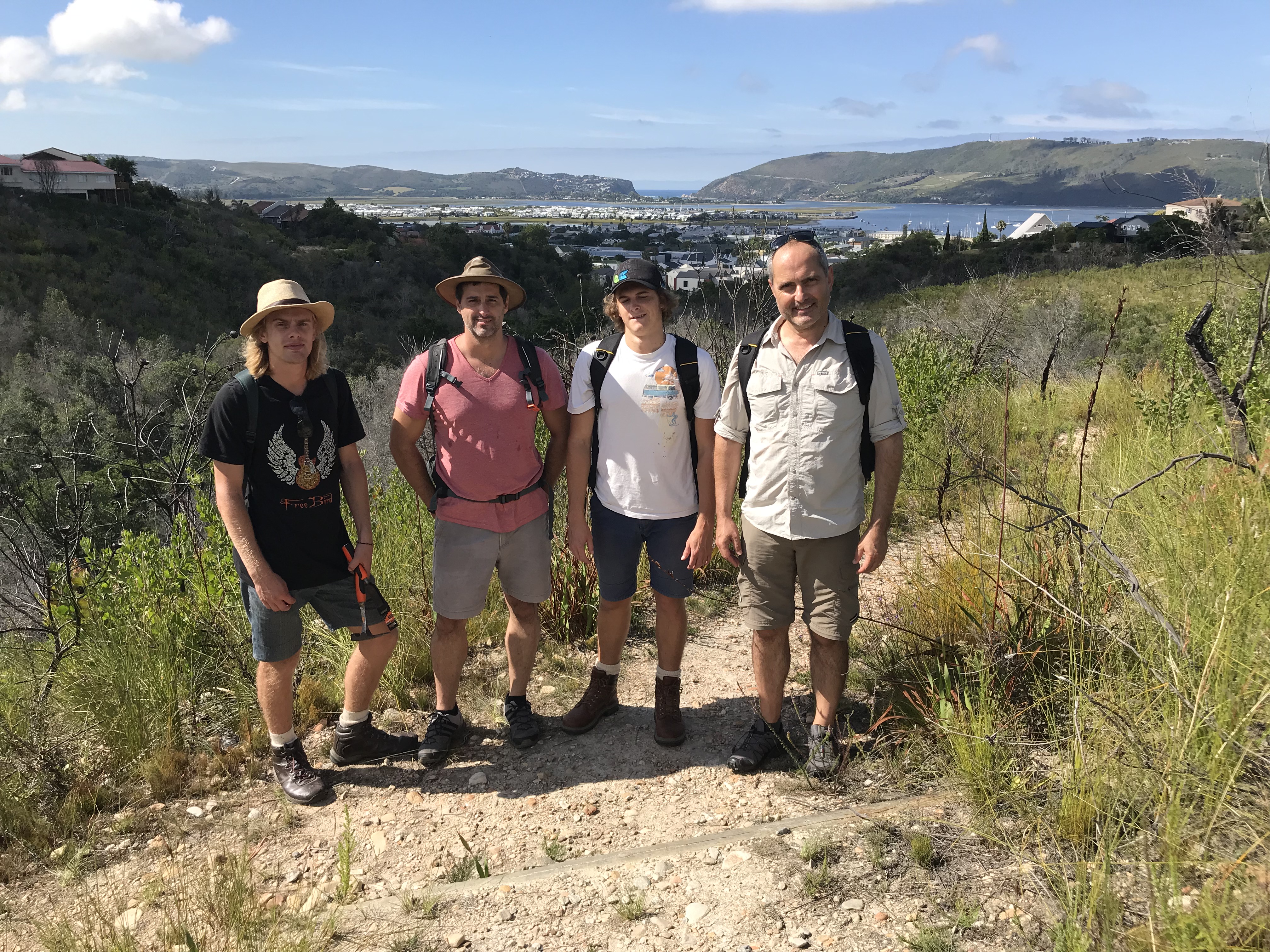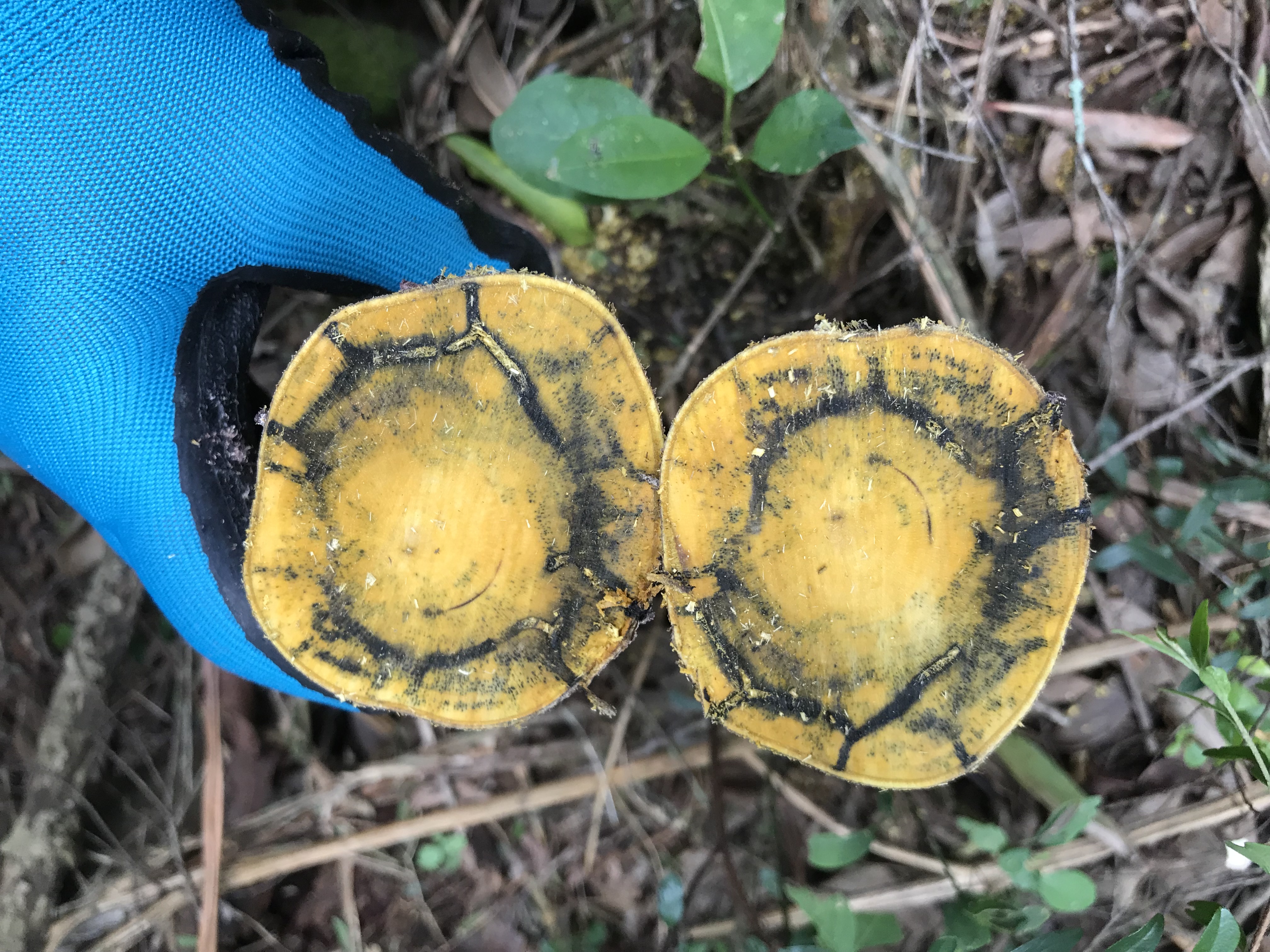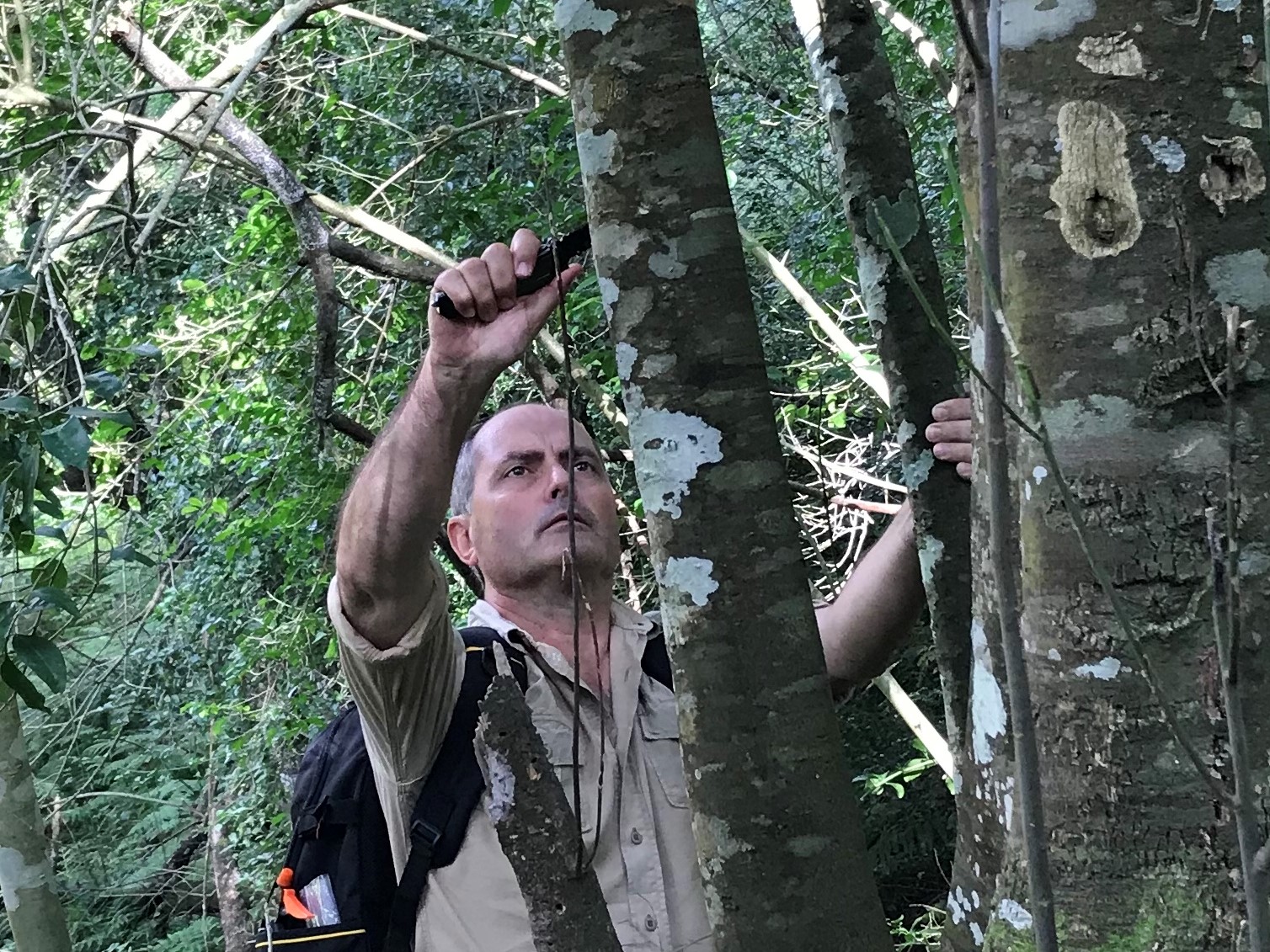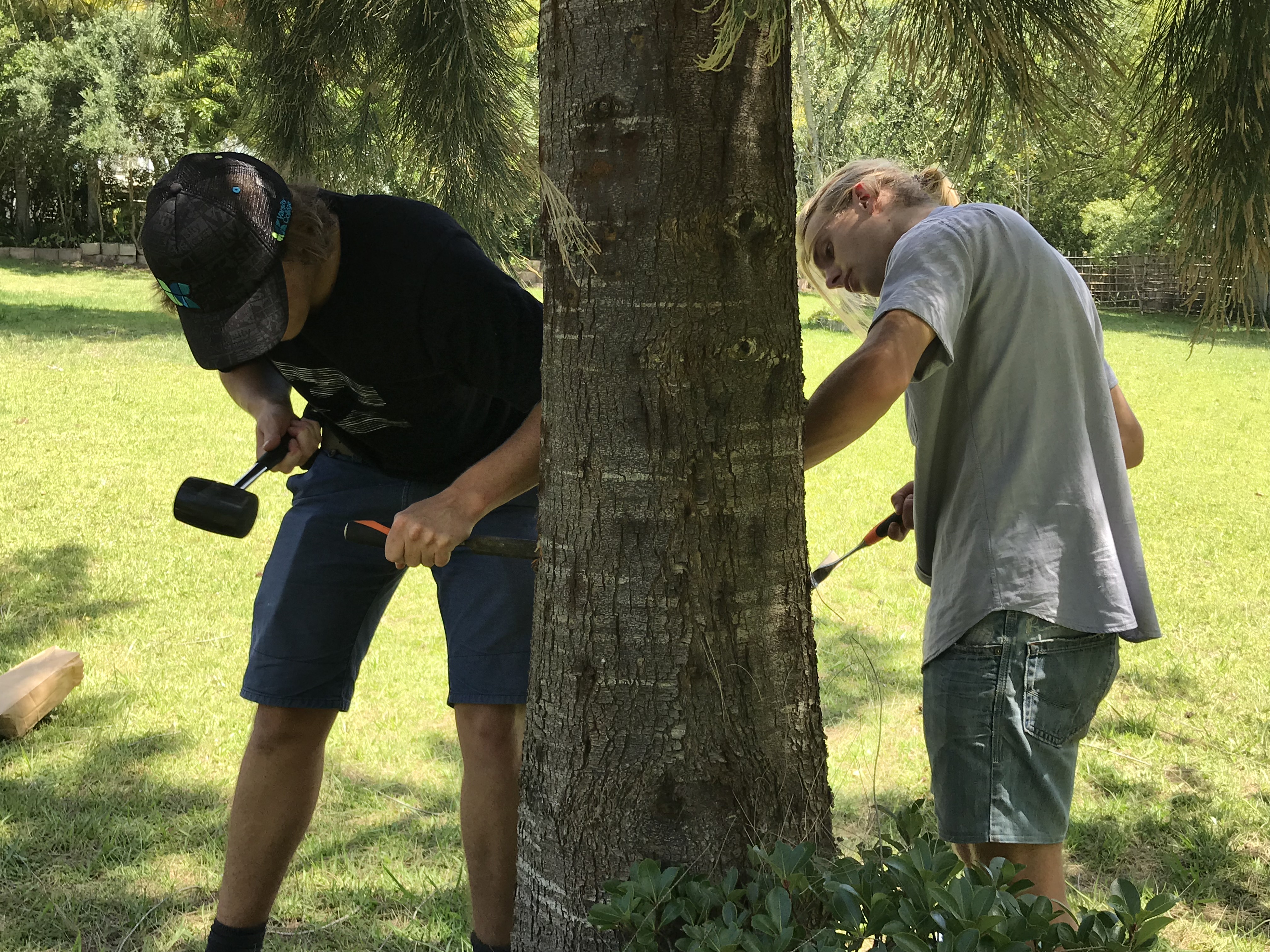Shot Hole borer projects launched in forests of the Southern Cape 2019-02-24

During the past week, Prof. Wilhelm de Beer of FABI and Prof. Francois Roets from Stellenbosch University, visited the southern Cape to launch two research projects on the impact of the Polyphagous Shot Hole Borer (PSHB) on native trees in the area. It was discovered last year that the beetle and its fungus infest native trees in the gardens of George and Knysna. Over the next two years, two Master's students, Elmar van Rooyen based at Stellenbosch University, and Garyn Townsend, based at Rhodes University but registered at the University of Pretoria, will regularly survey the forests around George and Knysna.
The aims of these projects are to determine 1) the rate of spread of the beetle, 2) which native tree species are infested, and 3) what the impact of the beetle and its fungus will be on these native trees. To date, the beetle has been recorded from 35 native host tree species in South Africa. During this week's surveys the beetle was found on several more tree species. The students are currently doing fungal isolations and identifications of the beetles and fungi to confirm whether all of these represent the PSHB. Although the beetle and fungus will definitely not kill all the native tree species that it infests, there might be some species at risk of being killed and thus removed from sensitive ecosystems.
The PSHB has made headlines again during the past week, with articles in the Sunday Times, Rapport, and the George Herald. The latter newspaper also placed a video of an interview with Prof. De Beer on Youtube.








